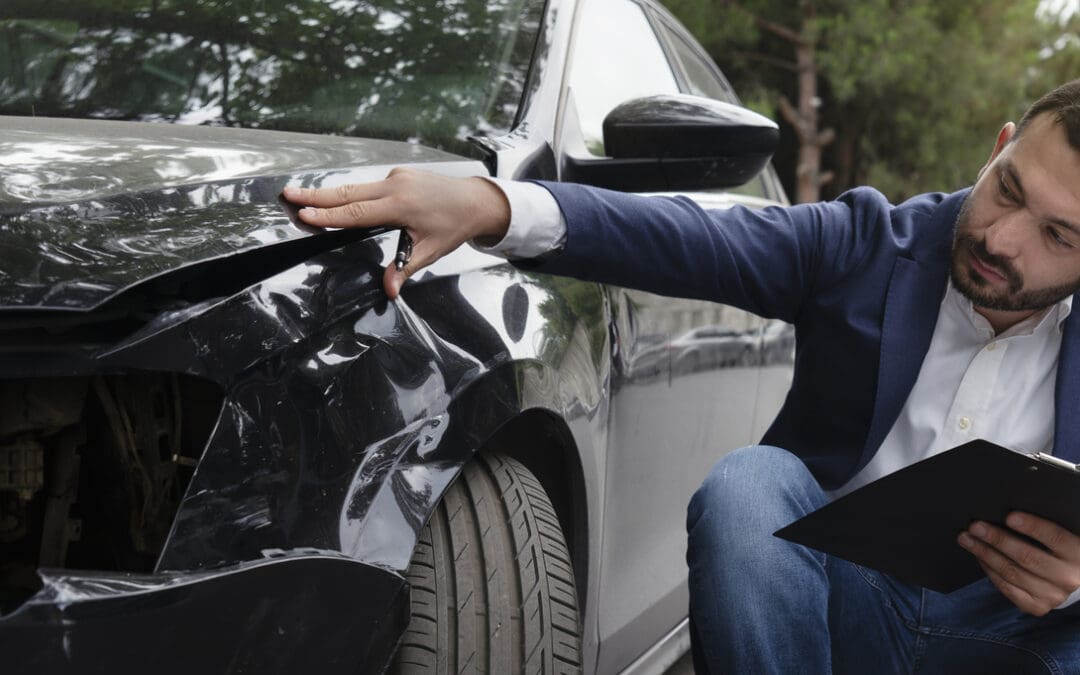How Car Accidents Affect Insurance Rates

How are insurance rates calculated? Do they increase every time you get into a car crash? How can you prevent them from going up? Read this week’s blog to get comprehensive answers to these questions.
As a car driver, you hope that you never get into a car crash. You try to mitigate collision risk by taking the basic safety precautions—driving sober, avoiding driving distractions, obeying traffic rules, and following your vehicle’s maintenance schedule.
While there’s no doubt these actions can decrease the odds of getting into an accident, not all collisions are avoidable. According to some estimates, the average driver will crash their car once every 17.9 years.
While these statistics may make an accident seem inescapable, it is comforting to know that not all motor vehicle collisions result in serious injuries or property damage. Regardless, though, any crash could influence the cost of your car insurance.
What are Insurance Rates?
Simply put, car insurance rates, also called premiums, represent the cost of your car insurance. Your premium is the amount of money your insurance company will charge you for the policy of your choosing. Your insurer sets your rate according to a complex formula that takes into account a variety of factors.
Some of these factors include:
- Type of coverage
- Amount of coverage
- Age, gender, and marital status
- Driving record
- Credit score
- Place of residence
Many people assume that their insurance rates will inevitably increase after a car crash, but this is not always the case.
When Insurance Rates Increase
Car insurance rates do not automatically go up after you’ve been involved in a car crash. After every collision, you are obliged to inform your insurance company of the accident and explain the circumstances that led up to it. The company will then investigate the collision to ascertain how serious it was and who was responsible.
One of the most influential factors of your future insurance rates is the answer to this simple question: Were you the at-fault driver? If so, then your rates are likely to rise.
Apart from that, your insurance company will take other factors into consideration including:
- Injuries sustained by either driver and other parties involved in the accident
- Whether the collision resulted in a fatality
- The extent of property damage
- Whether any traffic laws were violated
- Your previous driving history, including instances of traffic law violations or accidents in which you were at fault
Causing a major accident will most likely increase your insurance rates. Usually, though, instead of having to pay more for your insurance right away, your rates will go up once your policy has been renewed.
On the other hand, if you were involved in a collision caused by another driver—or if the accident you caused was minor—your insurance rates will not necessarily be affected.
How to Control Your Insurance Rates
Just as causing a major accident can increase your insurance rates, there are proactive measures you can take in order to keep them from going up—or even to be rewarded with lower premiums.
Some such positive actions include:
- Avoid speeding: Speeding tickets will raise your insurance rates, while obeying the speed limit may lower your premiums.
- Never drink and drive: A drinking and driving conviction is not only certain to raise your premiums but in some cases may also severely limit your ability to get insurance.
- Strive to have a clean driving record: Drivers with a clean slate are often eligible for discounts that lower the overall costs of insurance.
So what kind of policy are you obliged to carry as a motor vehicle driver in New Mexico? To learn the answer to this question, as well as more about car insurance in our state, please read our blog on New Mexico auto insurance laws.
Why Choose Ron Bell Injury Lawyers?
We Get Results!
